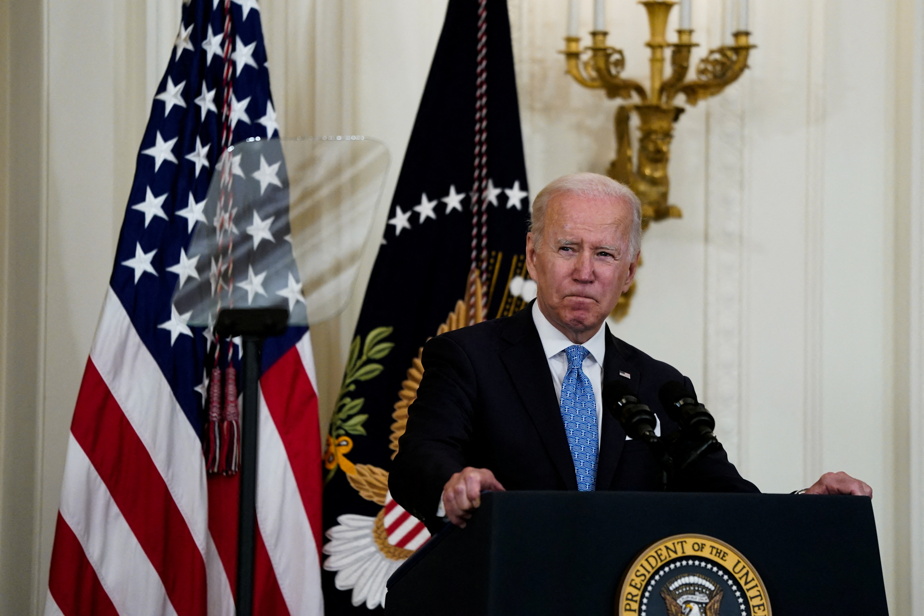(Washington) The Biden administration announced on Monday the lifting of a series of restrictions on Cuba, including immigration procedures, money transfers and air communications, a decision that promises to spark lively debate on a politically sensitive topic in the United States.
Posted yesterday at 7:36 PM.
This declaration, immediately hailed as a “small step in the right direction”, “but of limited scope”, by the Cuban government, is the result of the revision of US policy toward the communist regime, which had been launched by US President Joe Biden.
According to a statement from the State Department, the Biden administration will privately restore a suspended program for several years, which eased immigration procedures for members of the same family.
It also promises to increase the ability to process visa applications in Havana.
The US will also eliminate the $1,000 per quarter and per sender/recipient cap that has so far limited money transfers to Cuba, and will allow money to be sent outside the family.
However, the State Department specifies that these financial flows must not “enrich” people or entities that violate human rights.
This cap was set by former President Donald Trump, who took a series of actions against Cuba during his tenure.
The Biden administration will also increase the number of flights between the United States and the island, allowing service to cities other than Havana. It will also allow certain group trips that are currently prohibited.
But the Biden administration said financial sanctions targeting Cuban individuals or entities remain in place.
“Economic Opportunities”
A senior US administration official said the measures announced Monday are “practical decisions aimed at responding to the humanitarian situation” in Cuba and “developing economic opportunities” for Cubans.
In Havana, Foreign Minister Bruno Rodriguez acknowledged that these were “positive measures” but “in no way modify the embargo (the embargo in place since 1962, editor’s note), nor the major economic seat measures taken by Trump.”
“Neither the objectives nor the main tools of the US policy against Cuba have changed, and it is a failure,” he added in a statement posted on the ministry’s website, stressing the “readiness of” his government “to enter into a respectful and equal dialogue with the government of the United States.”
Democratic President Joe Biden seeks a delicate balance between a stated desire to “support the Cuban people” and encourage their democratic aspirations on the one hand, and firmness against the communist regime on the other.
Last summer he condemned the suppression of major demonstrations in Cuba and imposed a series of sanctions against Cuban officials.
The topic of relations with Cuba is politically hot in the United States, which has a large group of immigrants of Cuban origin.
“Today’s announcement risks sending the wrong message to the wrong people at the wrong time and for the wrong reasons,” immediately criticized Bob Menendez, the chairman of the Senate Foreign Affairs Committee, and a member like Joe Biden.
Conservative opposition, for its part, has long been closely associated with a pernicious criticism of the communist regime.
Thus, Republican Senator Marco Rubio accused the Biden administration of counting “sympathizers” with the communist regime in Cuba.
The elected official from Florida, where the majority of the Cuban community resides in the United States, stressed that the government’s decision represented “the first steps toward a return to Obama’s failed policies toward Cuba.”
During his tenure, Barack Obama, who was Vice President Joe Biden, opted for a policy of historic openness with the Caribbean island, which allowed for a brief improvement in relations between the two countries. Upon his arrival at the White House, Donald Trump tightened sanctions on Havana, returning to the policy of the Democratic president.

“Extreme twitteraholic. Passionate travel nerd. Hardcore zombie trailblazer. Web fanatic. Evil bacon geek.”


